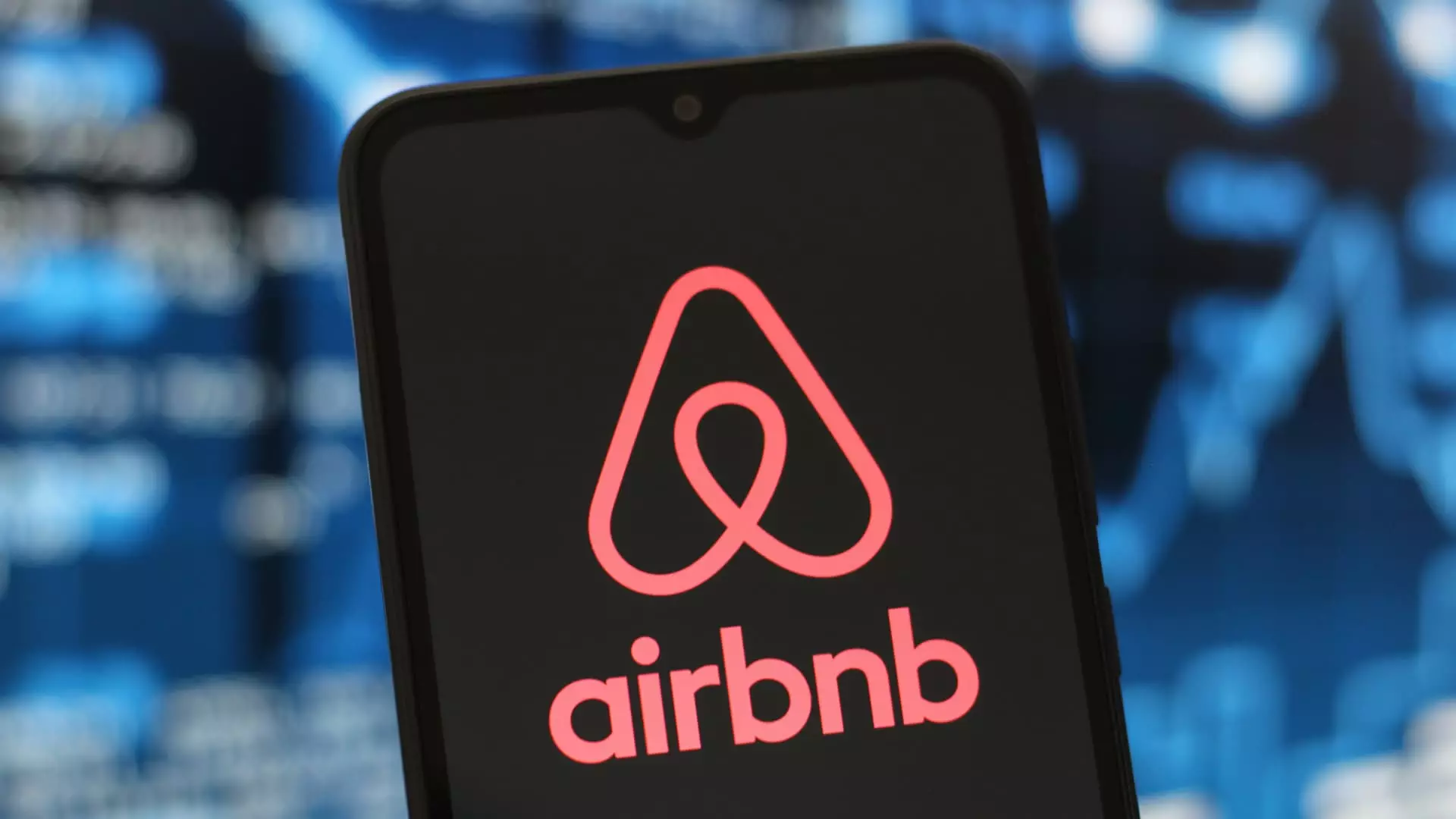Airbnb’s recent financial results have ignited significant interest in the investment community, showcasing a robust performance that exceeded Wall Street expectations. This article delves into the company’s fourth-quarter earnings report, provides context and analysis concerning its operational efficiency, and discusses the potential implications of its recent strategies moving forward.
In a surprising turn of events, Airbnb shares experienced a notable 15% uptick in after-hours trading following the announcement of its fourth-quarter earnings. The reported earnings per share (EPS) of 73 cents surpassed the anticipated 58 cents, while revenue of $2.48 billion slightly exceeded analyst expectations of $2.42 billion. This 12% increase in revenue, rising from the previous year’s $2.22 billion, signals a positive trajectory for the company, reflecting a rebound in travel demand and an improved business model.
The reported net income significantly contrasts with the previous period’s loss, highlighting Airbnb’s resilience and ability to pivot successfully in a challenging market. Last year’s report indicated a substantial net loss of $349 million, a stark reminder of the difficulties faced during the pandemic. By achieving a net income of $461 million this time around, Airbnb not only underscored stabilization but also revealed its capacity for growth under improved market conditions.
Looking forward, Airbnb has projected first-quarter revenues to be between $2.23 billion and $2.27 billion. Although analysts anticipated a figure of $2.3 billion, the slight deviation may not overly alarm investors as it indicates sustained growth despite potential seasonal fluctuations. The anticipated boost from events like Easter and the additional day in February is provided evidence of a seasonally-influenced uptick in consumer activity.
Additionally, Airbnb reported an adjusted profit of $765 million for the fourth quarter, further illustrating operational improvements year over year. This performance not only surpassed the anticipated $653.5 million but also reflects Airbnb’s agility in managing costs while driving revenue—critical capabilities in today’s competitive landscape.
Airbnb has emphasized its commitment to technological enhancement, recently completing a comprehensive overhaul of its technology infrastructure. In a shareholder letter, the company stated that these developments have significantly increased its conversion rates, thus directly impacting its financial outcomes. This focus on technology is further complemented by upcoming product updates set to launch in May, although specifics remain undisclosed. The strategic emphasis on technology can be interpreted as a way to ensure a smoother user experience and higher client retention, both vital for sustaining customer loyalty in the long run.
Airbnb’s commitment to becoming “a fundamentally stronger company” is evident as it entrenches itself further within the travel ecosystem. By executing a multi-year strategy designed to enhance its core service while exploring new market opportunities, Airbnb is positioning itself as not just a leader in the short-term rental space but a comprehensive travel service provider.
The company’s dedication to social responsibility has also been highlighted through its nonprofit initiative, Airbnb.org, which notably offered housing solutions following devastating wildfires in Los Angeles. By providing shelter to over 19,000 individuals and pledging 100,000 free nights, Airbnb illustrates its commitment to community engagement. This endeavor not only serves to fortify its brand image but also potentially elicits consumer loyalty during a time when social responsibility is increasingly becoming a purchasing factor for consumers.
Entering 2024, Airbnb boasts more than five million hosts and eight million active listings globally, with average daily rates rising to $158. Such figures suggest a robust appetite within the market for short-term rentals even as traditional travel channels evolve. The company’s market performance—recording a 7% increase year-to-date, surpassing the broader Nasdaq, which has grown by about 3%—is indicative of investor confidence and widespread market acceptance.
As Airbnb prepares to engage with investors in its quarterly earnings call, stakeholders will look closely at both the implications of its financial results and the strategic roadmap laid out in its communications. This overview of Airbnb’s financial health not only reflects its recent accomplishments but also foreshadows a potentially transformative year as the company navigates forward in the travel industry milieu.

